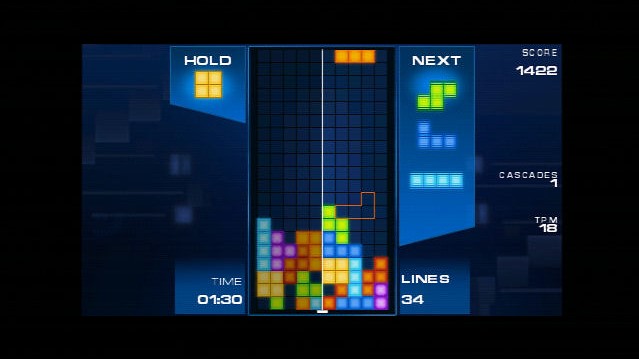Digital games, typical of those used on smartphones, may relieve stress after a day’s work more effectively than mindfulness apps, according to a study by UCL and the University of Bath.
In the study, published in JMIR Mental Health, participants were given a 15-minute maths test and then asked to either play a shape-fitting game or use a mindfulness app. Those in a control group were given a fidget-spinner toy.
Participants who played the shape-fitting game (“Block! Hexa Puzzle”) reported feeling more energised and less tired afterwards, while those in the mindfulness and fidget-spinner groups reported the opposite: their level of “energetic arousal” appeared to decline.
In a second part of the study, participants who played a shape-fitting game after arriving home from work for five days reported feeling more relaxed by the end of the week than those who were asked to use a mindfulness app.
Study co-author Professor Anna Cox (UCL Interaction Centre) said: “Far from feeling guilty about being absorbed by their phone, people who play such games after a stressful day at work should know they are likely to be gaining a real benefit.”
Lead author Dr Emily Collins, of the University of Bath, who started the research while at UCL, said: “To protect our long-term health and well-being, we need to be able to unwind and recuperate after work. Our study suggests playing digital games can be an effective way to do this.”
The authors noted that digital games appear to fulfil four criteria necessary for post-work recovery: they tend to be relaxing, they provide opportunities for mastering a new skill, they are highly immersive and distracting, and they allow people to feel in control.
While previous research has found an association between playing games and improved recovery after work, the authors attempted to establish a causal connection.
The first part of the study was a lab experiment in which 45 students aged between 19 and 36 were given a series of maths questions to induce a sense of work strain and then spent ten minutes either on the digital game, fidget spinner or the Headspace mindfulness app.
In a survey before and after using the game, app or toy, they rated on a four-point scale how tired and energetic they felt.
In the second part of the study, a different group of 20 participants were asked either to play the shape-fitting game or use a mindfulness app after arriving home from work for five days in a row. The game and app were installed on participants’ phones. After completing the activities, the participants were asked to fill in an online survey.
While no differences were found between the two groups in terms of how energised participants felt, the shape-fitting game appeared to offer increasing benefits throughout the week in terms of “recovery experience” - that is, to what degree participants felt relaxed, detached, in control and able to improve their skills.
This was measured by asking participants to what extent they agreed with statements such as “During the activity, I forgot about work.”
Surprisingly, participants who followed a beginners' course on the Headspace mindfulness app scored progressively less well on this measure throughout the five days.
The authors also noted that the level of enjoyment of the digital game was correlated with the amount of benefit it offered in terms of post-work recovery.
The research received funding from the Australian Research Council and the UK’s Engineering and Physical Sciences Research Council.

